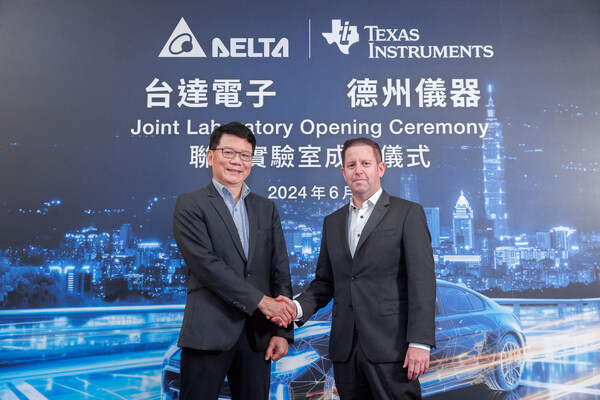Texas Instruments (TI) announced its long-term collaboration with Delta Electronics to create next-generation electric vehicle (EV) onboard charging and power solutions.
Together, TI and Delta aim to optimize power density, performance and size to realize faster-charging and more affordable EVs.
“The transition to electric vehicles is key to helping achieve a more sustainable future,” said Amichai Ron, senior vice president for Embedded Processing at TI. “Together with Delta, we will use TI semiconductors to develop EV power systems like onboard chargers and DC/DC converters that are smaller, more efficient and more reliable, increasing driving range and encouraging more widespread adoption of electric vehicles.”
“Delta has been developing high-efficiency automotive solutions since 2008 to help reduce transportation-related carbon emissions,” said James Tang, executive vice president of Mobility and head of the Electric Vehicle Solutions business group at Delta Electronics. “Through the establishment with TI, Delta intends to leverage TI’s abundant experience and advanced technology in digital control and Generative adversarial network to enhance the power density and performance of our EV power systems. We aim to achieve closer technology exchange and collaboration to accelerate product development and improve product safety and quality.”
Three-phases of development for next-generation automotive power solutions:
- In phase one, the team will focus on Delta’s development of a lighter-weight, cost-effective 11kW onboard charger, using TI’s latest C2000 real-time microcontrollers (MCUs) and TI’s active electromagnetic interference (EMI) filter products. The companies are working together using TI’s products to reduce the charger’s size by 30% while achieving up to 95% power conversion efficiency.
- In phase two, TI and Delta leverage the latest C2000 real-time MCUs for automotive applications to enable automakers to achieve automotive safety integrity levels (ASILs) up to ASIL D, which represents the strictest automotive safety requirements.
- In phase three, the companies will collaborate to develop the next generation of automotive power solutions, capitalizing on TI’s more than 10 years of experience in developing and manufacturing products with gallium nitride (GaN) technology.
“The rapid growth of electronics in automotive applications has enabled more feature-rich, efficient and safer vehicles. However, technical challenges remain,” said Luke Lee, president of Taiwan, Japan, Korea and South Asia, Texas Instruments. “Having been in Taiwan for 55 years, TI has built a strong connection with the local automotive industry. Establishing this collaboration is just one way TI is driving vehicle electrification forward.”
